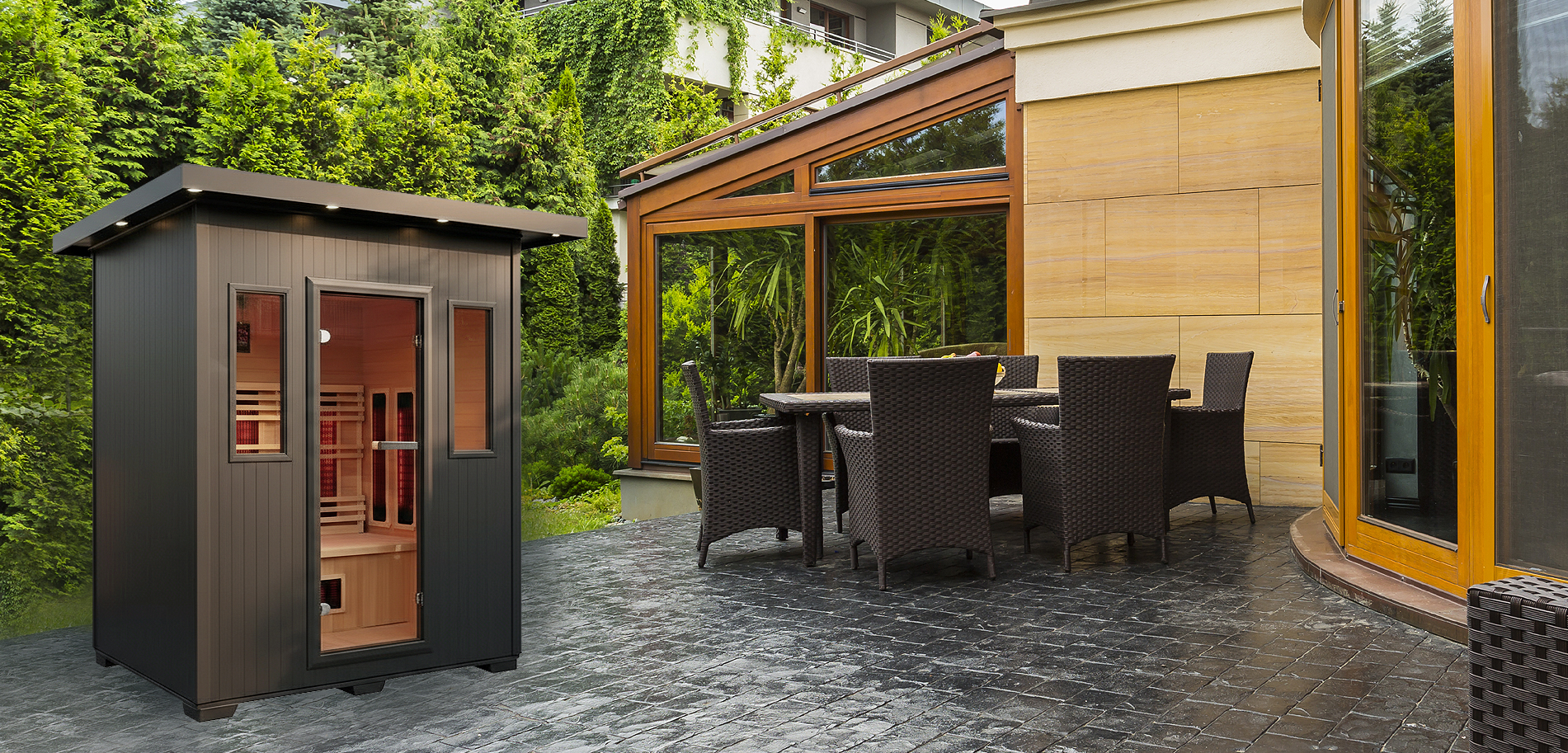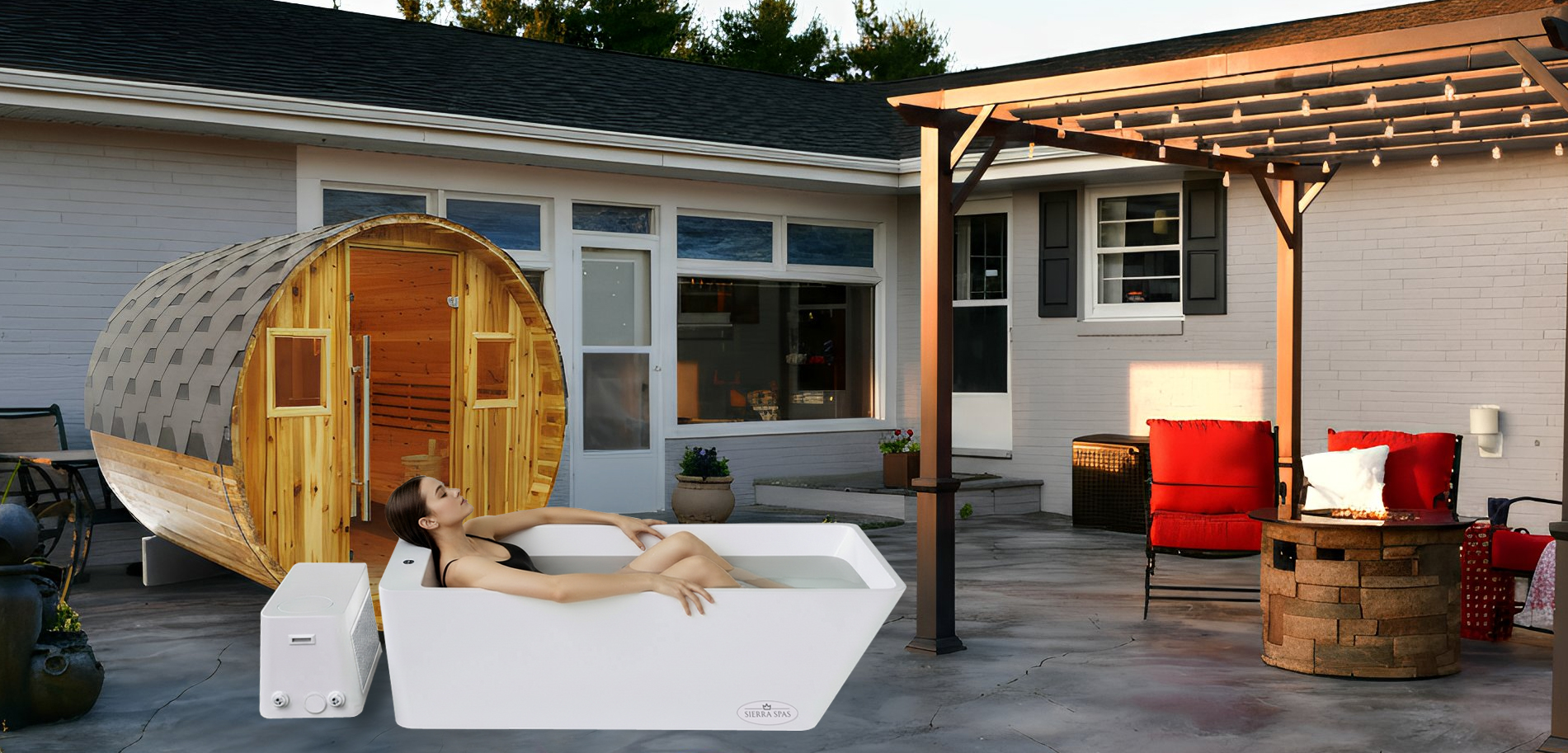Are Home Saunas Worth It?
Are you considering purchasing a home sauna but not sure if it's worth the investment? You're not alone! Home saunas are gaining popularity due to their many health benefits like detoxification, improved circulation, stress relief and even skin benefits. While the potential perks can be enticing, those perks come some drawbacks, including cost, maintenance, and space restrictions, to name a few.
In this article, we will explore the benefits and drawbacks of having a sauna in home to help you make an informed decision about whether a sauna for the home is right for you. We will discuss the pros and cons and provide you with insights that will help in your decision making process.
Let’s start with the pro’s of saunas for homes.
#1 Health Benefits
In-Home saunas offer various health benefits, supported by both individual user experience and clinical research: Here is a list of the some of the most popular sauna health benefits according to experts.
Cardiovascular Health: Regular infrared sauna use can improve heart health, reduce blood pressure, and lower the risk of cardiovascular disease.
Stress Relief and Relaxation: Saunas can promote relaxation, help manage anxiety, and can even improve sleep quality.
Pain and Muscle Recovery: Beneficial for athletes and those with chronic pain or joint conditions, sauna heat increases blood flow and can soothe sore muscles and joints. This is particularly effective with the use of contrast therapy(alternating between hot and cold therapy).
Boosted Immunity: Some studies suggest regular sauna sessions may help boost immune function and reduce inflammation.
Improved Respiratory Function: People with asthma or chronic bronchitis often report better breathing after sauna use.
#2 Convenience
With an in home sauna you can enjoy the sauna benefits anytime without leaving home or maintaining a gym or club membership. No more trips to and from the club just to enjoy a sauna session.
#3 Privacy
Not everyone enjoys having to use a sauna with a complete stranger in a commercial setting. Having a sauna in your home allows your experience to remain personal and uninterrupted.
#4 Cost Effectiveness
While the initial investment for a sauna can be high, if you use it at least twice a week, you will find it comparable or less expensive than ongoing spa or gym visits making it more cost-effective option long term.
#5 Customization Options
Saunas for homes can be tailored to your preferences for temperature, lighting, and duration. While customized saunas can get pricey, most home sauna DIY kits feature the most popular options available and many can be customized to fit your requirements and preferences.
#6 Home Value Boost
A high-quality home sauna can add value to your property when you resale your house. Saunas are viewed as a luxury item in many homes thereby potentially raising the homes value or desirability.
Drawbacks of Home Saunas
Now that we’ve discussed the positive benefits of home saunas let’s discuss some of the potential drawbacks.
#1 Upfront Costs
High-quality saunas can be expensive, with prices ranging from several thousand to tens of thousands of dollars, depending on the size, type, and features. This significant financial investment might not be feasible for everyone, and it's crucial to weigh the cost against the benefits to determine if it's a viable option. The installation costs alone can also vary, ranging from just your time involved for DIY kits to thousands of dollars for luxury custom built units. Beyond the initial cost, it's important to consider the ongoing expenses associated with owning a home sauna. These include maintenance, repairs, and energy consumption. Regular cleaning and upkeep are necessary to keep the sauna in good condition and ensure it continues to function correctly. Additionally, heating elements and other components may need to be replaced periodically, adding to the overall cost. Energy consumption can also vary depending on the type of sauna and how frequently it is used, impacting your monthly utility bills.
#2 Space Requirements
Saunas may require dedicated indoor or outdoor space, which isn’t always available. Space restrictions can also pose a challenge for those considering a home sauna. Not all homes have the necessary space to accommodate a sauna, especially larger models. Installing a sauna often requires a dedicated area that may need to be renovated or repurposed. This can be a significant inconvenience and may not be practical for individuals living in smaller homes or apartments. It's essential to assess your available space and consider whether a sauna can be integrated seamlessly into your living environment.
#3 Ongoing Maintenance and Costs
Regular cleaning and checks for electrical and structural safety are necessary to keep the sauna in good condition. Maintenance is another factor that can deter potential sauna owners. Keeping a home sauna in optimal condition requires regular cleaning and upkeep. The interior must be cleaned to prevent mold and mildew, and the heating elements must be maintained to ensure proper functioning. Additionally, some saunas require periodic replacement of parts, which can add to the ongoing costs. For those with busy schedules, the time and effort required for maintenance might outweigh the benefits. Energy consumption is another cost that you need to consider, especially if you choose a traditional sauna that uses an electric heater. Depending on usage, traditional saunas can add a couple hundred extra dollars to your electric bill each year, while infrared saunas should only add a few dollars per month with regular usage.
Maintenance and Installation Considerations
Installing a home sauna requires careful planning and consideration especially if you don’t have a lot of open space. One of the first steps is to determine the best location for the sauna. It needs to be placed in an area with adequate ventilation and access to a suitable electrical hookup. Popular locations include areas like basements, larger bathrooms, or garage home gyms.
Once you decide on a location, the installation and assembly process can begin. Some saunas come in DIY kits that can be assembled by the homeowner in as little as an hour while others may require professional installation. DIY kits can be a cost-effective option, but they do require a certain level of skill and knowledge. Professional installation, on the other hand, can ensure that the sauna is set up correctly and safely, but it comes with an additional cost. It's essential to weigh the pros and cons of each option and choose the one that best fits your needs and budget.
Choosing the Right Home Sauna
Selecting the right home sauna for you involves evaluating several factors to ensure it meets your needs and preferences. As discussed earlier, traditional, infrared, and steam saunas each offer unique benefits and experiences, so you need to think about what you hope to achieve with your sauna sessions. For example, are you seeking intense heat therapy, gentle detoxification, or respiratory benefits, and choose accordingly.
Size is another important factor to consider. Saunas come in various sizes, from compact models designed for one or two people to larger units that can accommodate several users. We recommend purchasing a sauna slightly larger than you think you may need based on usage as saunas typically run on the smaller side. A two-person model for example may fit two smaller adults but not necessarily two larger adults. Also consider how many people will be using the sauna regularly. If you plan to use it alone or with a partner, a smaller model may suffice. However, if you anticipate using it with family or friends, a larger sauna will definitely provide a more comfortable experience.
Additional features and add-on options can also influence your decision. Some saunas come equipped with advanced features such as chromotherapy lighting or red light therapy, Bluetooth sound systems, and digital or mobile device controls. These extras can enhance your sauna experience but may also increase the price. Consider which features are essential for you and which ones you can do without. Other options such as wood type, bench configuration, and built in backrests can also allow you to create a sauna that fits your aesthetic preferences and improve your comfort level while inside the sauna.
Alternatives to Home Saunas
After considering the pros and cons of a home sauna, if it doesn't seem like the right fit for you there are several alternatives that may provide similar benefits. Portable saunas for example are compact and can be set up and taken down easily, making them ideal for those with limited space or who may be renting. Portable saunas typically use infrared heat and offer many of the same health benefits as traditional saunas but at a much lower price point making them a practical alternative for budget-conscious individuals.
Another alternative to a home sauna is visiting a local spa or wellness center that offers individual sauna services. While this option doesn't provide the convenience of having a sauna at home, it allows you to enjoy the benefits without the associated costs and maintenance. A lot of spas offer a variety of sauna types, including infrared, steam, and traditional saunas, which allows you to choose the sauna that best suits your needs.
For those interested in the health benefits of heat therapy without the intensity of a sauna, hot tubs and steam showers can also be excellent alternatives. Hot tubs provide a soothing and relaxing experience, with the added benefit of hydrotherapy, which can help alleviate muscle and joint pain.
Steam showers can also offer a similar humid environment to steam saunas and can be a great addition to your bathroom. Mesa steam showers are a very popular brand.
Both options can enhance your home wellness routine and provide a relaxing retreat.
The Bottom Line: Is a Home Sauna Worth It?
In summary, deciding to invest in a home sauna requires careful consideration of the various benefits and drawbacks that we have covered here. The health benefits, including detoxification, improved circulation, and stress relief, are compelling reasons to consider a home sauna, while the convenience of having an in home sauna can enhance your quality of life and contribute to overall well-being. However, you should weigh these benefits against the potential drawbacks, such as the initial cost, ongoing maintenance, and space requirements.
A home sauna can be worth it if:
- You plan to use it regularly and value the convenience, privacy, and wellness benefits.
- You have the space and budget for the initial investment.
- You enjoy sauna experiences enough to justify the cost compared to spa or gym visits.
- You’re seeking ways to enhance relaxation and support your physical and mental health from home.
However, it may not be a good fit if:
- You use saunas infrequently.
- You have limited space or budget.
- Maintenance and running costs would outweigh your expected benefit from the sauna.
Bottom line:
If you have already experienced sauna sessions at your local gym and love it, have the space and budget to purchase a home sauna, and want to integrate regular relaxation and wellness into your lifestyle, a home sauna can be a smart and rewarding investment. On the other hand, if you are only considering a sauna for occasional use, the expense and space might not be justifiable, and you may be better off with a gym or spa membership for the time being.









